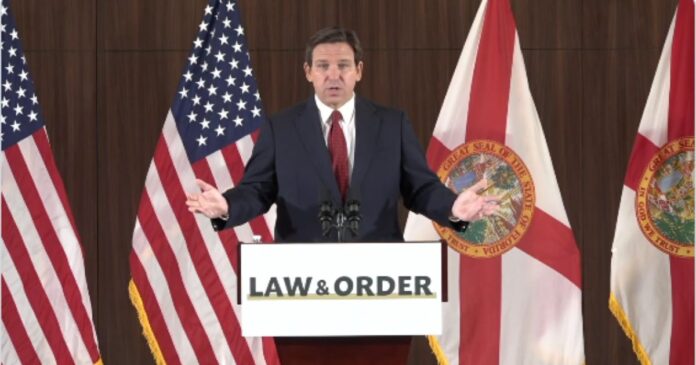Florida’s bipartisan Senate Governmental Oversight and Accountability Committee has just approved a bill that seeks to shield Governor Ron DeSantis’ travel records from the general public.
SB 1616 allows Florida’s Governor, the governor’s close family, visiting governors, and others state officials to be exempt from disclosing their travel records.
Currently, Florida has several “sunshine laws” which permit the general public to request travel logs of state officials.
The new bill attempts to amend state statute 943.68, that requires records of the Governor’s transportation and protective services to be disclosed to the public.
Members of the Florida Legislature moved this week to shield Gov. Ron DeSantis’s travel records from the public, proposing to change the state’s public information laws just as the governor ramps up what is expected to be a 2024 presidential campaign. https://t.co/lLFrsGeqA5
— The New York Times (@nytimes) March 24, 2023
The bill has come around the same time both Republicans and Democrats are requesting DeSantis to disclose details regarding who he traveled with during his recent book tour.
Citing an increase in public records requests for the governor’s travel schedule, Florida legislators are advancing a bill that would shield from the public any information about how and where Ron DeSantis and other state officials go https://t.co/5FsBtrv5cS
— Citizens for Ethics (@CREWcrew) March 23, 2023
Per The Tampa Bay Times:
Citing an increase in public records requests for the governor’s travel schedule, Florida legislators are advancing a bill that would shield from the public any information about how and where Gov. Ron DeSantis and other state officials go.
The bill would impose the first-ever public records exemption for the transportation records held by the Florida Department of Law Enforcement, the agency that handles the governor’s security.
The exemption would take effect retroactively, prohibiting anyone from scrutinizing how DeSantis has used his state travel in the past and as he prepares for a likely campaign for the Republican nomination for president.
The Bill passed unanimously passed the Senate committee 8-0 and a companion bill was passed by the House Ethics, Elections and Open Government Subcommittee 17-0.


